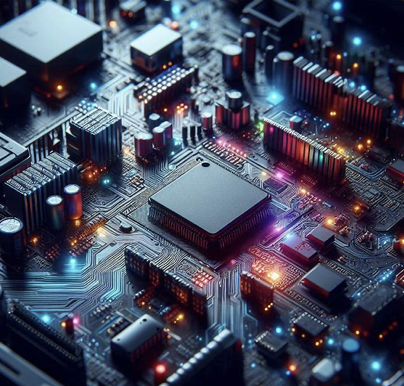When it comes to storage devices, two options dominate the market: Solid State Drives (SSDs) and Hard Disk Drives (HDDs).
Both offer storage solutions for various devices, including computers, laptops, and gaming consoles.
However, the question remains: which one provides faster storage?
SSD vs. HDD
SSD (Solid-State Drive)
- Speed: SSDs provide significantly faster read and write speeds compared to HDDs.
- Access Time: Almost instantaneous data access time.
- Noise: Operates silently as there are no moving parts.
- Durability: More durable due to the absence of moving parts.
- Energy Usage: Generally consumes less power, which can be especially beneficial for laptops.
- Cost: More expensive per gigabyte compared to HDDs.
HDD (Hard Disk Drive)
- Speed: HDDs generally have slower read and write speeds compared to SSDs.
- Access Time: Slower data access time due to mechanical parts.
- Noise: Can generate noise and vibrations due to the moving parts.
- Durability: Potentially more prone to damage from physical shocks.
- Energy Usage: Tends to consume more power than SSDs, particularly during intensive read/write operations.
- Cost: Less expensive per gigabyte, offering larger storage capacities at lower prices.
In the context of speed, SSDs are notably faster than HDDs, making them a preferred choice for tasks that require high-speed data access and transfer, such as in gaming, content creation, and running operating systems.
However, HDDs might still be chosen for budget-conscious storage of large amounts of data where speed is not a critical factor.
Below we look deeper into the differences between SSDs and HDDs, explore their respective advantages and disadvantages, and ultimately determine which option offers superior speed.
Table of Contents
The Basics: SSDs and HDDs
Before we compare the speed of SSDs and HDDs, it is essential to understand their fundamental differences. Let’s start by examining each storage device individually.
Solid State Drives (SSDs)
SSDs are a type of storage device that uses flash memory to store data.
Unlike HDDs, which rely on spinning disks and magnetic heads to read and write data, SSDs have no moving parts.
This absence of mechanical components contributes to their exceptional speed and reliability.
SSDs are constructed using NAND-based flash memory, which allows for faster data access and transfer rates.
This technology enables SSDs to deliver significantly faster read and write speeds compared to HDDs.
Additionally, SSDs offer lower latency, meaning they can access data more quickly, resulting in faster overall performance.
Hard Disk Drives (HDDs)
HDDs have been the traditional storage solution for decades.
They consist of one or more spinning disks coated with a magnetic material and an arm with a read/write head.
The arm moves across the spinning disks to access and store data magnetically.
While HDDs have larger storage capacities compared to SSDs at a similar price point, they are slower due to their mechanical nature.
The spinning disks and moving arm introduce latency, resulting in slower read and write speeds.
However, HDDs remain a popular choice for storing large amounts of data, such as media libraries or archival files, due to their cost-effectiveness.
Speed Comparison: SSDs vs. HDDs
Now that we have a basic understanding of SSDs and HDDs, let’s compare their speed in various aspects:
1. Boot Time
When it comes to booting up your computer or laptop, SSDs have a significant advantage over HDDs.
Due to their faster read speeds and lower latency, SSDs can load the operating system and launch applications much quicker.
In contrast, HDDs require more time to spin up and access the necessary data, resulting in longer boot times.
2. File Transfer Speed
Whether you’re copying files from one location to another or transferring data to an external device, SSDs outperform HDDs in terms of file transfer speed.
SSDs can read and write data at a much faster rate, reducing the time required for file transfers.
This speed advantage is particularly noticeable when dealing with large files or multiple small files.
3. Application Loading Time
If you’re tired of waiting for applications to load, upgrading to an SSD can significantly improve your experience.
SSDs excel in loading applications swiftly due to their faster read speeds and lower latency.
This advantage becomes particularly apparent when launching resource-intensive applications or multitasking.
4. Gaming Performance
Gamers often seek faster storage solutions to reduce loading times and improve overall gaming performance.
SSDs offer a substantial advantage in this regard. Games installed on an SSD load faster, allowing players to jump into their favorite titles without delay.
Additionally, SSDs can provide smoother gameplay by reducing texture pop-ins and improving asset streaming.
5. Random Access Speed
Random access speed refers to the time it takes for a storage device to locate and retrieve specific data.
SSDs excel in this aspect, as they can access data randomly and almost instantaneously.
HDDs, on the other hand, require the spinning disks to rotate and the read/write head to move physically, resulting in slower random access speeds.
Advantages and Disadvantages
While SSDs clearly offer superior speed compared to HDDs, it is essential to consider the advantages and disadvantages of each storage device before making a decision. Let’s explore these factors:
Advantages of SSDs:
- Exceptional read and write speeds
- Lower latency
- Faster boot times
- Improved application loading times
- Enhanced gaming performance
- Reduced power consumption
- Durability (no moving parts)
Disadvantages of SSDs:
- Higher cost per gigabyte compared to HDDs
- Smaller storage capacities at a similar price point
- Limited lifespan (finite number of write cycles)
Advantages of HDDs:
- Larger storage capacities at a lower cost
- Longer lifespan (no finite write cycles)
- Widespread compatibility
Disadvantages of HDDs:
- Slower read and write speeds
- Higher latency
- Increased power consumption
- Prone to mechanical failures
FAQs – SSD vs. HDD: Which Provides Faster Storage?
1. Are SSDs faster than HDDs?
Yes, SSDs are significantly faster than HDDs due to their lack of moving parts and faster read and write speeds.
2. How much faster are SSDs compared to HDDs?
SSDs can be up to 10 times faster than HDDs in terms of read and write speeds.
3. Do SSDs improve boot times?
Yes, SSDs can significantly improve boot times by loading the operating system and launching applications faster compared to HDDs.
4. Are file transfers faster with SSDs?
Yes, SSDs offer faster file transfer speeds compared to HDDs, making them ideal for tasks that involve copying or moving large files.
5. Can SSDs improve gaming performance?
Yes, SSDs can improve gaming performance by reducing loading times and providing smoother gameplay.
6. Do HDDs have any advantages over SSDs?
HDDs have larger storage capacities at a lower cost compared to SSDs. They also have a longer lifespan and widespread compatibility.
7. Are HDDs more prone to failures?
Yes, HDDs are more prone to mechanical failures due to their moving parts, while SSDs have a higher level of durability.
8. Do SSDs consume less power than HDDs?
Yes, SSDs consume less power compared to HDDs, making them more energy-efficient.
9. Can HDDs be a cost-effective option for storing large amounts of data?
Yes, HDDs are a cost-effective option for storing large amounts of data, such as media libraries or archival files.
10. Which storage device should I choose: SSD or HDD?
The choice between SSDs and HDDs depends on your specific needs, budget, and storage requirements.
If speed and performance are your top priorities, SSDs are the better option.
However, if you require larger storage capacities at a lower cost, HDDs may be more suitable.
11. Are there any limitations to SSDs?
SSDs have a limited lifespan due to the finite number of write cycles they can endure.
However, modern SSDs have significantly improved in this aspect, and their lifespan is generally sufficient for most users.
12. Can I use both SSDs and HDDs in the same system?
Yes, many systems allow for the use of both SSDs and HDDs.
This setup can provide the benefits of faster storage with an SSD for the operating system and frequently used applications, while utilizing the larger storage capacity of an HDD for data storage.
13. Can I upgrade from an HDD to an SSD?
Yes, upgrading from an HDD to an SSD is a common practice to improve overall system performance.
However, it is important to ensure compatibility with your system and consider the storage capacity of the SSD.
14. Are there any alternatives to SSDs and HDDs?
While SSDs and HDDs are the most common storage options, there are alternatives such as hybrid drives (combining SSD and HDD technologies) and cloud storage solutions.
These alternatives offer different trade-offs in terms of speed, cost, and convenience.
15. Will SSDs eventually replace HDDs?
While SSDs continue to gain popularity and their prices decrease, it is unlikely that they will completely replace HDDs in the near future.
HDDs still offer advantages in terms of cost per gigabyte and larger storage capacities, making them suitable for specific use cases.
Summary – SSD vs. HDD: Which Provides Faster Storage?
SSDs undeniably provide faster storage compared to HDDs.
Their lack of moving parts, faster read and write speeds, lower latency, and superior random access speed make them the ideal choice for those seeking optimal performance.
SSDs excel in boot times, file transfer speeds, application loading times, and gaming performance.
However, it is important to consider the advantages and disadvantages of each storage device before making a decision.
SSDs offer exceptional speed and reliability but come at a higher cost per gigabyte and have limited storage capacities.
On the other hand, HDDs provide larger storage capacities at a lower cost but suffer from slower speeds and higher power consumption.
Overall, the choice between SSDs and HDDs depends on your specific needs, budget, and storage requirements.
Related


